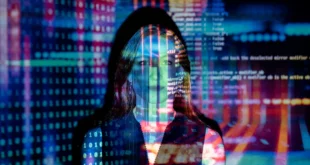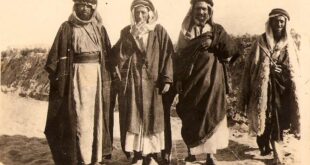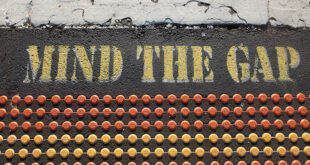Issue 35, winter/spring 2023
https://doi.org/10.70090/JG23CNLP
Abstract
Several laws regulate and influence reporting on crime in the United Arab Emirates, a country in which journalism functions within a Loyalist Press environment. These include elements in the 1980 press law and the recently updated penal code and cybercrimes laws. This legislation can secure the confidentiality of police investigations, protect privacy, and prevent the spread of false information, but it can also hinder timely reporting and the dissemination of important facts. Viewed through the Social Responsibility theory of the press, its effects include preventing fulfillment of the media requirement of full access to current information. Additionally, factors such as an official emphasis on “happiness” may influence news coverage.
Purpose and approach
This article describes several laws which regulate and influence reporting of crime- and police-related news in the United Arab Emirates (UAE), a country which has been described as having a Loyalist Press type of media system (Rugh 2004). Besides these laws’ practical effects on UAE journalism, it discusses some of their interpretive possibilities in the context of the Social Responsibility theory of the press (Peterson, 1963), as well as other factors that may affect crime-related reporting in the country. Sources informing the contents include UAE laws (UAE Ministry of Justice 2008, and UAE Federal Decree By Laws 31 [the penal code] and 34 [the cybercrimes law] of 2021, both 2022); English-language articles appearing in UAE media; and Arabic sources translated for the author. The article also incorporates input from current or former UAE-based journalists, often obtained during university events and classroom visits and discussions under the Chatham House Rule.[1] These professionals (including some of the author’s former students) were from diverse backgrounds, generally with multi-lingual abilities in Arabic and English, and experience covering crime stories in the UAE. Some police media representatives also provided on-background information.
Introduction
In media systems reflecting the Liberal Model, which is “enshrined in normative theory, [and] based primarily on the American and to a somewhat lesser extent the British experience” (Hallin and Mancini 2004, 13), the press and police both have responsibilities to the public. However, they may also simultaneously have mutually exclusive objectives regarding information. Liberal Model news media are expected to disseminate accurate information about the workings of public offices, including those charged with safety and security. Much of this is done under the idea that the public has a right to know such details, and that their publication is in the public interest (see e.g., Harcup 2015, 26-27). In such systems, law enforcement is likewise tasked with serving the public interest by solving and preventing crimes. Yet doing this may at times may require confidentiality and secrecy – qualities which, if not carefully regulated, could lead to abuse.
Operating outside the Liberal Model, the United Arab Emirates – a politically conservative “federal presidential elective monarchy” (Khassawneh and Abaker 2022, 104, citing Ulrichsen 2016) which has been described as a “stable and competent autocrac[y]” (Haidt 2022) – presents a different sense of public interest in its police-press dynamic. It regularly enjoys high rankings in business-oriented indexes, including government trust (Edelman 2023), but “tightly controls its domestic media” (Debre 2022) and ranks low in press freedom (e.g., RSF 2023). While crime, court, and other police-related news appears in its press, there are obstacles to gathering and presenting such information in the country, even that which may be considered routine elsewhere.
Rugh placed the UAE’s non-adversarial media system into a category he called the Loyalist Press (2004), one of a range of typologies that have been developed and applied to Arab media (see e.g., Ayish 2002; Mellor 2005; Richter and Kozman 2021; and Kraidy’s 2012 application of Hallin and Mancini 2004). Care must be taken with Rugh’s work (see e.g., Harb 2019, 110-111; Kraidy 2012, 179-80), but his Loyalist Press category still largely fits the UAE’s news media. The latter are characteristically supportive of government and passive in coverage, with little investigative reporting or policy critique (Rugh 2004, 65-68; see also Gibbs, 2019; Ayish 2021).
If the Liberal Model is not a global norm, researchers have found that when asked about their role, many UAE journalists – like many of their counterparts elsewhere – profess to aspire to that model’s ideals, seeing “themselves as objectively reporting watchdogs of government” (Van Dalen et al 2016, 189, citing Weaver and Willnat 2012, 543). But while UAE journalists have been officially encouraged “to uphold the truth” (Gulf News 2005b) and “be bold, transparent and unbiased in their reports” (Gulf News 2005c), they have no legal authority to act as independent monitors of public life. Rather, all UAE “media are meant to serve as a powerful voice of national identity and government orientation” as well “as vehicles for education, entertainment, and cultural expression. … The common feature defining the [country’s media] regulations is a strong sense of social responsibility and a profound belief in media contributions to economic prosperity, social welfare, and cultural fulfillment by those making the rules” (Ayish 2021, 113. See also e.g., Gulf News 2008, The National 2016a).
This emphasis on responsibility in the country’s media invites discussion of the work of the Hutchins Commission (Leigh 1947). Its conclusions were later codified as Social Responsibility theory in Four Theories of the Press (Peterson, in Siebert et al 1963), originally published in 1956. The Hutchins Commission’s findings were American-centered but have been applied elsewhere (e.g., Kumwenda 2010; Uzoechi 2014). While scholars have recognized Four Theories of the Press’s limitations (e.g., Nerone 1995) the media requirements of Social Responsibility theory provide a starting point for assessing the effects of UAE laws affecting crime reporting. This paper will also examine their implications on timeliness, a key gatekeeping principle or news value (DeFleur and DeFleur 2022, 195-196), and will note other factors which can impact crime news in the UAE.
The police-press dynamic, and corresponding laws
Even in societies following Hallin and Mancini’s (2004) Liberal Model, the police-press relationship is likely to be complex, contentious, and constantly changing, with too-close relationships as potentially compromising as hostile ones for information-gathering (Mawby 2012; and Reiner 2007). Law enforcement in such societies generally has a number of specific goals when dealing with the press, which has its own requirements (Mawby 2012, 275-276; see also Mawby 2010). When these come into conflict, it may have significant implications; a lack of collaboration hinders both entities from meeting their public interest needs (see Turner 2013, 46-48).
Though recent incidents involving US police violence caused social upheaval domestically and internationally, with implications for news coverage (see, e.g., Libin 2022), police have been described as “[p]robably the single most important source for journalists…” capable of helping reporters generate “an endless stream of stories…” (Harcup 2015, 66). Overemphasis on crime may invite criticism as being sensationalist (Leigh 1947, 54-57). However, such news can also be informative and instructive about a society’s boundaries (Cohen 2002, 10-11, citing Erikson 1966, 12; Box 1971, 40, quoted in Chibnall 1977, xi). It arguably helps fulfill the Social Responsibility theory requirement that media present and clarify a society’s goals and values (Leigh 1947, 27-28) – in this case by showing their violation. Doing this also needs context and balance to meet another Social Responsibility requirement, that media properly represent a society’s constituent groups (Leigh 1947, 22-23, 26-27; see also e.g., Hurwitz and Peffley 1997; and Oliver 2003). From a different Four Theories approach, a Libertarian might hold that police coverage provides information about public safety while also allowing journalists to check on government by reporting on the activities of a usually well-funded entity (see Siebert 1963, 56, 61-62). Alternatively, closed societies may suppress reportage of crimes and other domestic bad news or require its ideological filtering (Gibbs 1999, 7; Dickie 2013, 13-14).
In Liberal Model countries, journalists have over time accumulated legal rights to police and government records (e.g., RCFP, n.d.; Cooke and Sturges 2009). This is in keeping with such systems’ sense of how journalism is meant to serve the public interest, as well as with Social Responsibility theory’s promotion of broad access to current information (Leigh 1947, 28). Problems arising from coverage of incidents or investigations in these countries tend not to involve the release of basic information, such as the occurrence of a criminal act. Rather, they involve details authorities want kept confidential to avoid compromising possibilities of arrest and conviction, such as the identities of witnesses or those under suspicion or surveillance, or the existence of key pieces of evidence.
The laws of the UAE affecting journalists, who operate in a Loyalist Press environment, have a different effect than those of Liberal Model examples. Article 78 of the UAE’s 1980 press law – still its basic media regulatory document – allows authorities to prohibit publication of news about an investigation, as did Article 264 of the 1987 penal code and as does Article 313 of its 2021 revision. An application of Article 264 of the then-current penal code came in 2014, when the UAE government cited it in “banning the publication [of] details related to an incident regarding the death of an Asian child in a school bus in all forms of audio, visual and social media outlets. The decision also included banning giving opinions or making remarks regarding the incident by ordinary people and others that may be related to the case until the accusation and referral decision is taken and made by the Attorney General” (WAM 2014.) Such legal application prevents fulfillment of the Social Responsibility theory media requirement of allowing full access to current information, as well as that of providing a forum for comment and criticism (Leigh 1947, 23-25, 28). The principle that UAE media are “not to disclose information on a criminal investigation, which has not been concluded and/or ordered to be confidential” appears in the country’s “national standards” for media outlets (UAE Government Portal 2023). UAE police departments have on occasion reminded the press that, in their coverage of an incident, they were “required to consider police efforts” (Al Jandaly and Za’za’ 2005).
A practical result of this is that police information about criminal incidents and ongoing investigations in the UAE is routinely off-limits to journalists until a case is deemed closed. The official reason for this is that any reporting about an incident may hinder efforts to make an arrest. Thus, a crime victim publicly charged that a UAE daily newspaper (as paraphrased) “lacked basic journalism ethics and is dangerous for state security because it published a report on the crime before it was solved by the police” (Gulf News editorial 2005b). Exceptions to this tight information control occur in select cases, such as those with international ramifications (e.g., Al Najami 2009, 2010; and The National 2015 and 2023); those involving missing persons; or those involving fires and traffic accidents offering immediate public safety concerns. But normally access to police data about incidents, or logs of them, is not available. The standard response to a media request for information about a crime is that the department will release it when the investigation is over.
Examples of investigative reporting do occur in the UAE (e.g., Farooqui and Bedirian 2014a and 2014b) but are rare. The country’s law enforcement agencies do not give “exclusives” to individual journalists or outlets, but like reporters everywhere UAE-based journalists may cultivate police sources for use in their stories (e.g., Dajani and Al Subaihi 2016). Tips from the public can be confirmed, if not by police, then through channels such as hospitals. Reporters also gather data about incidents and investigations from court proceedings and legal documents on file. It is, in fact, from courts rather than police that journalists in the UAE generally get details about crimes. Reporters with experience covering courts in several emirates cite generally good access to courtrooms, hearings, and documents, as well as interaction with lawyers, relatives of those involved, and officials. However, reliance on court hearings or documents for initial information about an incident means such episodes might be “old news” before details appear in the press. (The news value of timeliness will be discussed below.)
While the Loyalist Press may be characterized as passive, in the past UAE-based media have, on rare occasions, publicly challenged the police over transparency (Gulf News editorial 2005a, Khaleej Times 2005d). Equally rarely, UAE police departments have publicly criticized news coverage (Al Jandaly 2005b; Abdullah 2005a and 2005b), and officials have accused media of stirring up trouble (Mussallam 2005). Tension in 2005 between the press and the police saw division emerge among journalists themselves, one reporter faulting coverage reliant on “information collected from the streets or obtained from unconcerned sources,” although another acknowledged “times when they [the police] requested us not to publish a news [sic] for fear that it would affect the investigation process” (quoted in Khaleej Times 2005e).
Discussions about police-press communication may also involve two issues addressed below: the country’s strong legal protections regarding privacy and defamation; and the fact that some information gleaned during an investigation can turn out to be inaccurate.
Names and photos
Some media outlets in Liberal Model system regularly identify those arrested, a practice increasingly scrutinized in the digital media era (e.g., Blom 2017). The UAE has had strong laws in place regarding protection of privacy and reputation which help discourage the naming of those arrested in its press. The 2021 updates to the penal code (in Article 425) and cybercrimes law (in Article 43) retain broad definitions of defamation. Additionally, an industry-wide media code of ethics, crafted by the UAE Journalists Association, and which editors began agreeing to uphold in 2007 (Al Lawati and Za’za’ 2007), stated that “names and photos of suspects should not be published until a final verdict is issued” (Gulf News 2008). UAE media crime stories usually include only a suspect’s initials, age, a general reference to nationality, and job description or title when relevant to the story.[2] This has applied even at times when police released a suspect’s photo (e.g., Abdullah and Rizvi, 2005). UAE media rarely identify those who have been convicted in court, perhaps because appeals are expected.
In high-profile cases UAE media publish suspects’ names when law enforcement agencies publicly identify them (see Bathish 2008; Al Najami 2009 and 2010; The National 2015 and 2023) or follow the lead of foreign media in naming suspects. Additionally, journalists may name victims whose identities have been made public by their families (e.g., Al Amir 2022). During the early stages of the pandemic police posted mugshots of those arrested for flouting or mocking COVID-19 restrictions (The National 2020).
False news
Police media representatives have told the author that another reason for denying journalists access to investigation details is because some information police receive about a case may be wrong. While such barriers help prevent the spread of misinformation, they introduce problems into the police-press dynamic. Social Responsibility theory opposes the suppression of information, although it also emphasizes the need for accuracy and context (Leigh 1947, 21-23, 28). Certainly, a reporter using unproven or tentative data is expected to carefully weigh, attribute and qualify it.
UAE laws with potential ramifications regarding false news include Article 217 of the recently updated UAE penal code, which retains elements of the adjusted 1987 penal code (198/1, added in 2005) prohibiting the spreading of false news deemed against the public interest. The recently updated cybercrimes law contains a similar prohibition (Article 52). Police in the UAE have publicly threatened legal action against journalists for printing allegedly false crime news (Abdullah 2005b). An Abu Dhabi court fined an editor for publishing “inaccurate information” (Za’za’ 2007). Arrests have also been made for spreading “fake news” on social media (e.g., Webster 2020). The country’s cybercrime laws have addressed social media postings (Husain 2022; Gautam 2021), the taking and use of photos or videos of people without consent (Dajani 2015; Al Amir 2020) and the posting of images of illegal acts, crime scenes, and accident scenes (Achkhanian 2016; Ali and Al Serkal 2018; The National 2016b). What constitutes a cyberlaw violation is flexible. During a period of regional tension, expressions of sympathy for Qatar on social media could be deemed cybercrimes (Al Serkal 2017).
Discretion and “Happiness”
In a culture that values discretion, there is special sensitivity when UAE crime stories involve well-known families, or issues of “honour” and reputation. Prohibitions in the abovementioned Article 313 in the penal code’s recent revision include publication of news regarding domestic or family issues, and the identification of sexual assault victims and juvenile suspects. Notably, the UAE since 2016 has had a Ministry of Happiness overseeing, among other things, the rebranding of government customer service departments as Happiness Centers (e.g., Al Remeithi 2016). Similar terminology has found its way into police departments (e.g., Twaha 2016; Khaleej Times 2022), department stores, service centers, and street names. An offshoot of this is that “[s]elf-censorship is rife among journalists at local outlets expected to provide a stream of good news in the UAE …” (Debre 2022). Concern about the political sensitivity of certain topics may also induce UAE-based journalists to “frame” or “flip” elements in a story to present “bad news” in the context of overall improvement or enforcement/response efforts.
Implications for Timeliness, Rumour and Risk
Some of the legal factors discussed above present problems for UAE journalists regarding timeliness, a news value which is crucial in a journalistic gatekeeper’s “making judgements about newsworthiness” (DeFleur and DeFleur 2022, 195-196. Chibnall 1977 used immediacy to describe essentially the same concept). For example, in the UAE, between 12-17 February 2005, a lone man stabbed but fortunately did not kill four women in separate nighttime incidents in the emirate of Sharjah. Though he was eventually arrested and convicted, the attacks initially went unreported, journalists lacking access to police data, or legal recourse to obtaining it. Only on 25 February did the Dubai-based English-language daily newspaper Gulf News begin reporting on the episodes. Not until 12 March would local police confirm that there had been four attacks on women (Agarib 2005; Al Jandaly and Za’za’ 2005; Khaleej Times 2005b; Hamza 2005).
One problem with a lack of timely news about such incidents is that people seek other sources to fill the information gap (DeFleur and DeFleur 2022, 196; see also Oh et al 2013, 408-409). In the 2005 case discussed above, while police told media and the public to avoid spreading rumours (Al Jandaly 2005a; Al Jandaly and Za’za’ 2005), such messages proliferated, largely by texts sent via mobile phones – something later UAE laws would prohibit. These heightened anxiety by inflating the number of incidents (Al Baik and Al Jandaly 2005; Khaleej Times 2005a, 2005c and 2005d; Hamza 2005). Some rumours categorized victims by clothing. One version held that the suspect “attacked women wearing tight jeans” (Al Baik and Al Jandaly 2005), this in an emirate with a “decency code” regulating dress and deportment (Gulf News 2001). Another claimed that the suspect attacked only veiled women (Hamza 2005). Either rumour could represent an effort to reduce the perception of risk (see Jewkes 2004, 47-48, 72-74) by limiting victims to those dressed a certain way, or to assign a motivation for the attacks, perhaps with perceived cultural or religious subtexts.
Changes in the police-press dynamic
Though few recent examples exist of open journalistic pushback against legal restraints, the English-language UAE press has in the past questioned official concerns over whether crime coverage, among other things, hinders investigations (Khaleej Times 2005d) or spreads panic (Bardsley 2005). In 2005, police-press tension culminated in the detention of a reporter over a complaint arising from a crime story (Za’za’ and Hadid 2005), and discussions took place in the English-language press about limitations on media in general (e.g., Montague 2005; and Stent 2005). The UAE government smoothed the situation via actions and statements supporting journalists (Al-Amoudi 2005; and Gulf News 2005a, 2005b, and 2005c). A 2007 government decree, coming at the time of the libel conviction of two UAE-based journalists, exempted reporters from criminal penalties for media offenses incurred in the line of professional journalistic work (Salama and Za’za’ 2007). An apparent quid pro quo was the media’s adoption of the above-mentioned code of ethics (e.g., Salama 2007). Though not a legal document, it has been cited as authoritative in at least one civil lawsuit (Za’za’ 2010).
In recent years there have been few public signs of tension between UAE media and police or officials. Government entities have made official efforts to foster better communication (e.g., IGCC 2019; MOFAIC 2021). Dubai Police, for example, operates a sophisticated, well-staffed operation with an online presence across multiple platforms, providing official information about incidents, albeit largely in the aftermath of investigations. Nor is there a shortage of court news in UAE media. But regarding day-to-day crime news that might be considered routine elsewhere, restrictions remain in place
Conclusion
In contrast to journalists working in Liberal Model systems, those in the UAE have no legal access to information from law enforcement agencies. Rather, several UAE laws, including the 1980 press law and recent updates to the penal code and cybercrimes laws, allow authorities to prevent reporting news about criminal and other police-related incidents and ongoing investigations. Though occasional exceptions occur, UAE law enforcement bodies generally release material to the press about an incident only after an arrest is made. Official reticence avoids compromising investigations and helps protect privacy and prevent the spread of any false information that police may inadvertently receive, but it may also prevent the timely reporting of important news, and the resulting lack of credible information may help stimulate the spread of rumours. Assessed using the Social Responsibility theory of the press, UAE journalists’ lack of access to police data prevents fulfillment of the media requirement of full access to current information. Additionally, an official emphasis on “happiness,” in place since 2016, has reportedly influenced news content.
Acknowledgements
For input, critical reading, translation, or other assistance with this article, the author wishes to thank Saladin Aljurf; Siham Al Najami; Nada Al Taher; Daniel Bardsley; Razmig Bedirian; Haneen Dajani; Dr. Cindy Gunn; Tanya Karpiak; Dr. Anna Kuzio; Richard K. Lodge; Dr. Jairo Lugo-Ocando; Kareem Shaheen; Sherouk Zakaria; Dr. Bouziane Zaid; Bassam Za’za’; and from the American University of Sharjah: Dr. Abeer Al-Najjar, Saeed Al Shamsi, Dr. Mohammad Ayish, Dr. Mohammed Ibahrine, and Hala Nasar.
[1] “When a meeting, or part thereof, is held under the Chatham House Rule, participants are free to use the information received, but neither the identity nor the affiliation of the speaker(s), nor that of any other participant, may be revealed” (Chatham House, n.d.).
[2] Arabic sources searched on the author’s behalf in May 2022 were the media outlets Al Bayan, Al Khaleej, and Emarat Al Youm (courtesy Hala Nasar).
 Arab Media & Society The Arab Media Hub
Arab Media & Society The Arab Media Hub





